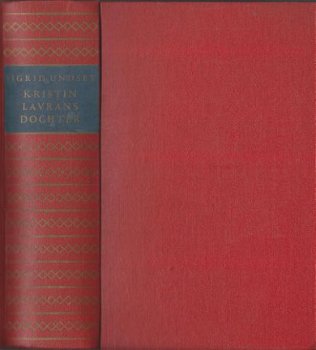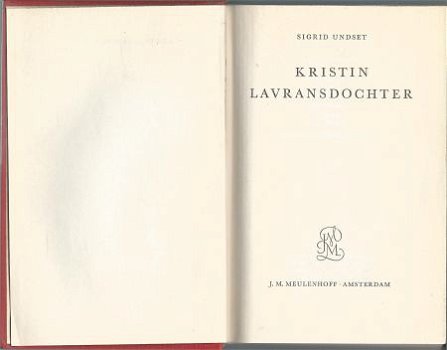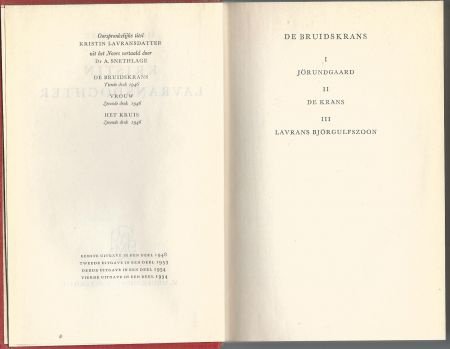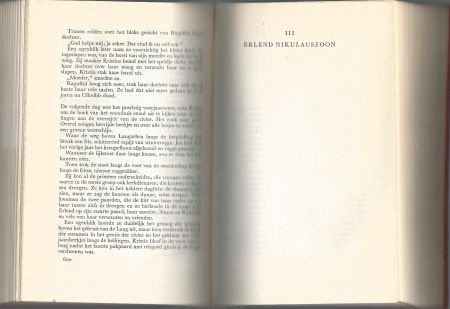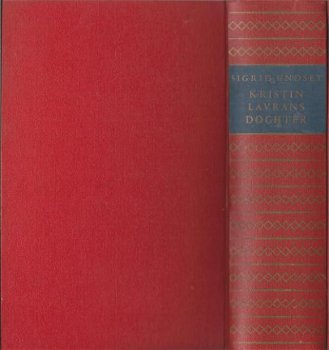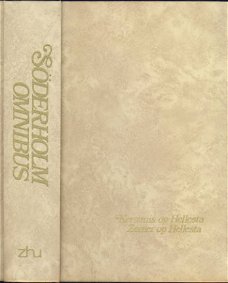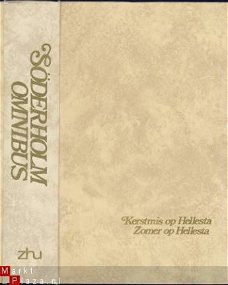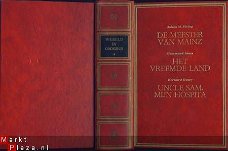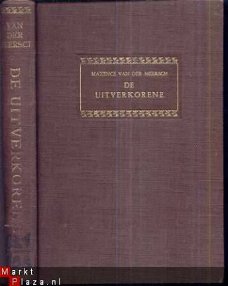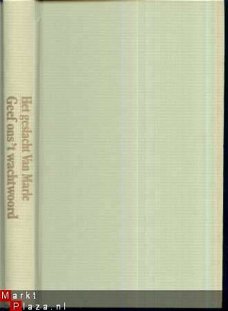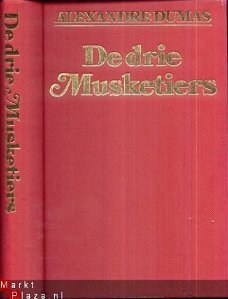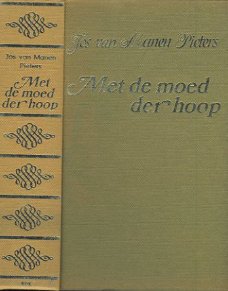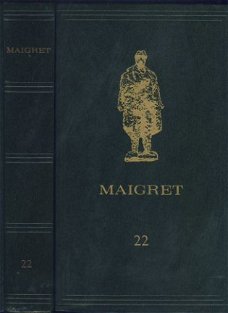
SIGRID UNDSET**LAVRANSDOCHTER TRILOGIE:1.BRUIDSKRANS.2..3..
Kenmerken
- Conditie
- Gebruikt
- Levering
- Niet van toepassing
Omschrijving
SIGRID UNDSET
**KRISTIN LAVRANSDOCHTER** TRILOGIE:
1.DE BRUIDSKRANS.
2.VROUW.
3.HET KRUIS
.UIT HET NOORS VERTAALD DOOR
DR. A. SNETHLAGE
J.M. MEULENHOFF AMSTERDAM.
S¨PLENDIDE SOLIDE ROOD-RODE KARTONNEN HARDCOVER!!
ARTIKEL INVENTARIS CODE 32.536
FORMAAT 203 X 132 X 55!! + 1203 PGS + 916 GRS.
VERZENDING IN BELGIE 5,50 EURO
Sigrid Undset (1882-1949)
Norwegian writer who was awarded the Nobel Prize for Literature in 1928. Undset is best-known for her novels about life in the Scandinavian countries during the Middle Ages. Her early novels dealt with contemporary subjects, problems of city women, as her later works, in which she returned to the modern world. Often her heroines face tragic consequences when they are unfaithful for their true inner self or idealistically break traditional sex roles. In his presentation speech, Per Hallström, Chairman of the Nobel Committee of the Swedish Academy, stated that "the erotic life, the problem common to the two sexes, which constitutes the centre of Sigrid Undset's psychological interest, is found again, almost without modifications, in her historical novels. In this respect, objections naturally come to mind. In medieval documents, the feminist question is not known; one never finds hints of the inner personal life which later was to raise this question. The historian, demanding proofs, has the right to note this discrepancy. But the historian's claim is not absolute; the poet has at least an equal right to express himself when he relies on a solid and intuitive knowledge of the human soul." Undset did not deliver a Nobel lecture, but said in her brief acceptance speech that "I write more readily than speak and I am especially reluctant to talk about myself." Sigrid Undset was born in Kallundborg, Denmark, as the daughter an archeologist. Through his father's influence Undset developed a fascination with medieval history and sagas, ballads, and mythology of Scandinavia. From her Danish mother Undred derived realistic view of life in general but she never shared her mother's critical attitude toward religion. When she was two years old, the family moved to Christiania (now Oslo), Norway. Undset's father died in 1893, and the family's financial situation deteriorated. At the age of 16 Undset took a job as a secretary in a office to support her mother and two sisters. She worked there for the next ten years, read on her spare time and wrote to her Swedish pen pal, Andrea (Dea) Hedberg. Undset's first novel, FRU MARTA OULIE, appeared in 1907. "I have been unfaithful to my husband," confessed the protagonist in the story of marital infidelity, which shocked some critics. It was followed by a collection of short stories next year. Her second novel, Gunnar's Daughter (1909), was an imitation of Icelandic saga and earned her a government scholarship. She left her job and devoted herself entirely to writing. Her third novel, JENNY (1911), Undset partly set in Rome, and depicted with enthusiasm the sights of the Eternal City. "Helge whispered aloud to the city of his dreams, whose streets his feet had never trod and whose buildings concealed not one familiar soul: "Rome, Rome, eternal Rome." And he grew shy before his own lonely being, and afraid, because he was deeply moved, although he knew that no one was there watching him. All the same, he turned around and hurried down toward the Spanish Steps." (from Jenny) In the story a promising young artist, Jenny Winge, tries to compromise between love and artistic goals. Jenny leaves her indolent fiancé, Helge Gram, feels attraction to his father, Gert, a failed artist, wh leaves his wife. Jenny doesn't want to marry him, she loses her baby who lives six weeks, and travels to Rome where she commits suicide. After the success of her books, Undset started to travel. In 1912 she married the Norwegian painter Anders Castus Svarstad. She had met him in Rome, where she had moved after her second novel. Undset returned with Svarstad to Norway. Svarstad continued his career as an artist, Undset published several books, took dutifully care of the home, and raised five children - three of them from his previous marriage. They separated in 1919 and Undset settled on a farm in Lillehammer in Gudbrandsdal. Before publishing her great historical novels, Undset wrote SPLINTEN AV TROLDSPEILET (1917), which focused on the contradictions between new opportunities for women and their traditional duties. In 1924 she converted to the Roman Catholic faith. In her later novels, such as NORSKE HELGNER (1934), religion plays an important role.
